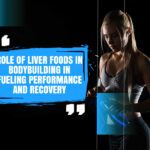
Definition and Types of Peptides
Proteins are made up of amino acids, which are small chains of these building blocks. They are very important for many biological processes, like metabolism and cell communication. Peptides come in different forms. For example, dipeptides only have two amino acids, while polypeptides can have a lot more. Additionally, some peptides are created naturally in the body, while others can be made in labs for medical uses. Knowing the different kinds helps you understand their many uses, like controlling hormones and boosting the defense system.
Importance of Peptides in the Body
Signaling molecules called peptides send information to cells and organs, which are important for keeping you healthy and happy. By changing different bodily functions, they help keep everything in check, from mood and immune system function to growth and development. As an example, insulin, a well-known peptide hormone, is very important for keeping blood sugar levels and energy consumption in check. You should add peptides to your workout or health plan if you want to improve your general health. There are many perks, like supplements, that help muscles grow, heal, and stay healthy on the skin. However, it’s important to talk to a doctor or nurse before beginning any peptide-based program. Because they are experts, they can help you pick the best peptides and doses for your wants and goals. By doing this, you’ll use the amazing power of peptides to improve your health and get the results you want. Remember that taking the time to learn about peptides could have huge health and body benefits!
Peptides in Food Sources
Natural Food Sources of Peptides
When it comes to enhancing your health, did you know that you can naturally incorporate peptides into your diet? Many foods are rich in peptides, especially proteins. Dairy products like yogurt and cheeses, as well as meats such as chicken and fish, are excellent sources. Plant-based options, including soy and legumes, also pack a punch in terms of peptide content. Additionally, eggs and certain nuts can be great additions to your peptide-rich meals. By including a variety of these sources, you can easily begin to reap the benefits of peptides in your everyday diet!
Benefits of Consuming Peptide-rich Foods
Adding peptide-rich foods to your diet can help your health in many ways! Peptides can help muscles repair and grow, which is very important if you’re busy or do a lot of exercise. They also help your defense system work better and speed up the healing process. Studies also show that some peptides may help keep your skin healthy and help you lose weight by controlling your metabolism and hunger. Adding peptides to your diet is an easy way to improve your health and fitness that works well. Remember to eat a healthy, varied diet that is high in whole foods, and try to include the sources of nutrients we talked about earlier. By being aware of the foods you eat and choosing peptide-rich options first, you can eat a tasty, healthy diet that also improves your general health. It’s not just how much you eat but also what kind of food you eat, so enjoy those peptide-rich foods!
Absorption of Peptides in the Body
How Peptides are Absorbed in the Digestive System
When you eat things that are high in peptides, your digestive system breaks them down very quickly. Peptides are long chains of amino acids. Enzymes like pepsin and pancreatic proteases help break them up into smaller pieces during absorption. When these peptides get to the small intestine, they are taken in by the body through the lining of the gut. These substances are absorbed so that they can work their health benefits all over your body. So, every time you eat a meal that is high in peptides, you are actively improving your health!
Factors Affecting Peptide Absorption
Several factors can influence how efficiently your body absorbs peptides from your food. For instance, the overall health of your digestive system is paramount; any issues, such as inflammation or imbalances in gut bacteria, can hinder absorption. Additionally, the cooking method may affect peptide availability; steaming or grilling might preserve more peptides than boiling. Another important aspect is the timing of your meals. Having peptides close to your workouts can be especially beneficial for muscle recovery, as the post-exercise window is ideal for nutrient absorption. Also, the combination of foods can play a part—consuming healthy fats or carbohydrates alongside your peptide-rich meals can enhance absorption. Lastly, staying hydrated and maintaining a balanced diet can further optimize peptide efficacy in your body. By being mindful of these factors, you can ensure that your body makes the most of the peptides you consume!
Health Benefits of Ingesting Peptides
Muscle Growth and Repair
One of the best things about peptides is that they help your muscles grow and heal. Collagen peptides are one type of peptide that is known to help your muscles make more protein. By eating them, especially after a workout, you can speed up the healing process, ease pain, and improve your general athletic performance. Eating foods that are high in peptides can help you gain muscle mass and strength, which will make it easier to reach your exercise goals. So, the next time you plan your healing, remember to include those tasty meals that are full of peptides to help your muscles get stronger again.
Skin Health and Anti-Aging Effects
The fact that peptides are good for your face is another great thing about them. You lose some of your skin’s elasticity and rigidity as you age. Peptides are very important for encouraging the production of collagen, which can help get rid of fine lines and wrinkles. By eating foods that are high in peptides, you can help your skin’s structure, which will make it look younger and healthier. Peptides are also good for healing because they help reduce inflammation and make skin more hydrated. If you want to improve your skin health as well as your overall health, try eating foods like fish, eggs, or bone broth. Adding peptides to your diet isn’t just a trend; it’s a smart way to improve your health as a whole. Take advantage of the perks and let your inner glow show!
Risks and Side Effects of Peptide Ingestion
Allergic Reactions to Peptides
While peptides can offer great benefits, it’s important to be aware that some individuals may experience allergic reactions. If you’re trying a new peptide-rich food or supplement, pay close attention to how your body responds. Symptoms can range from mild to severe and may include hives, itching, or even trouble breathing. If you suspect that you’re having an allergic reaction, it’s vital to stop usage immediately and seek medical attention if necessary. Always consult with a healthcare professional if you have known allergies or concerns before incorporating new peptides into your diet.
Potential Interactions with Medications
Another consideration while ingesting peptides is their potential interaction with medications you might be taking. Some peptides can affect how your body metabolizes certain drugs, leading to unintended side effects or reduced efficacy. For instance, if you’re on medications for blood pressure or anticoagulants, it’s especially crucial to talk to your doctor about any peptides you plan to add to your regimen. They will be the best resource to ensure you’re making a safe choice and advise on any necessary precautions. Knowledge is power, so taking the time to understand your health status can help you enjoy the advantages of peptides while minimizing risks. Remember, a balanced approach to health includes being informed about both the benefits and possible consequences of what you consume. Always prioritize your well-being!
Peptides as Nutritional Supplements
Role of Peptide Supplements in Fitness
Peptide supplements have gained popularity among fitness enthusiasts for their potential to boost performance and recovery. By providing your body with specific amino acids, these supplements can enhance muscle growth, improve endurance, and speed up recovery times after intense workouts. Many athletes and bodybuilders turn to peptide supplementation to help them reach their fitness goals more effectively. Moreover, incorporating peptides into your routine can improve metabolism, support fat loss, and overall physical performance, making them an appealing option for those committed to maintaining a healthy lifestyle.
Considerations When Choosing Peptide Supplements
As you consider adding peptide supplements to your regimen, it’s vital to do your research. First and foremost, look for reputable brands with transparent sourcing and quality testing, ensuring that the peptides you’re consuming are safe and effective. It’s helpful to read reviews, ask for recommendations, and consult with healthcare professionals who specialize in nutrition or sports medicine. Additionally, be mindful of the dosages and specific types of peptides best suited for your goals. They vary greatly in function, so knowing whether you’re targeting muscle growth, fat loss, or recovery can make a significant difference in your results. Ultimately, being informed and attentive to your body’s needs will not only help you maximize the benefits but also promote a successful and sustainable approach to your fitness journey. Always remember that what works for one person may not work for another, so find the right balance that resonates with you!
Regulatory Guidelines for Peptide Ingestion
Understanding Labeling and Dosage Recommendations
When you ingest peptides supplements as part of your exercise routine, it is important to follow the rules set by the government about labeling and dosage. The pills you’re thinking about should be relabeled to tell you exactly what kind of peptides are in them and what other ingredients they might have. You can make sure that it fits with your exercise goals by reading the label. Follow the dosage guidelines given by the manufacturer to get the most out of the peptides. The right dose is very important. If you take too little, you might not notice any benefits, and if you take too much, you might experience unwanted side effects. Remember that you should always start with the right dose and see how your body responds before slowly increasing it. Depending on where you live, regulatory bodies may have different rules, so paying close attention to the approval and quality standards can give you even more peace of mind. Good Manufacturing Practices (GMP)–compliant supplements are often a good choice because they make sure that products are always made and controlled according to quality standards. When it comes to peptide supplements, make it a habit to keep up with any changes to the rules or new studies. The field is always changing, so staying up to date helps you make smart choices. It will help you get the most out of your supplement journey.






